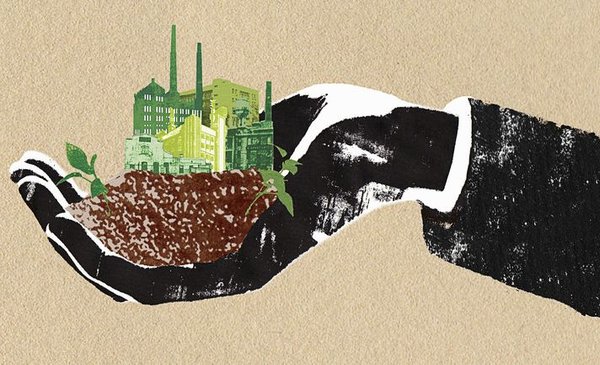In 2023, social responsibility is no longer a nice-to-have for eCommerce companies. It’s a must-have.
While it’s been a buzzword for years, today it’s reached a fever pitch in the eCommerce world. No longer can companies merely maintain a brand. Consumers want them to stand for something more than themselves and be a part of efforts to make a better planet and global community.
This can look different for every company. Some may promote climate responsibility, others a commitment to reduce human trafficking, some may stand for women’s rights, while others look to support minority causes. Whatever the case, running an ethical company focused on corporate social responsibility is now not just seen as a feel-good move—it’s actually essential for business.
Social responsibility can:
- Increase brand exposure
- Boost employee morale
- Open the door to new business opportunities
- Lead to greater productivity
- Attract and retain customers
So how does social responsibility play a role in eCommerce, and what are some real-world examples of companies making it a priority?
In this guide, we’ll look at how businesses are not just doing one-off socially responsible campaigns but incorporating their choices into their entire corporate identity.
Related Reading: The ‘New Normal’ in E-Commerce and How We Shop
Choosing Something to Stand For
Aligning one’s brand with a cause is step one in becoming more socially responsible for an eCommerce brand. But how to choose?It’s hard to underestimate how important authenticity is to consumers. A whopping 86 percent of consumers say authenticity is important when deciding what brands they like and support, according to Stackla. So a brand can’t just choose a cause to get behind at random. It has to align with their values. Otherwise, consumers will read through it as a mere ploy.

Fortunately, there are many great examples of eCommerce brands championing important causes.
Take, for example, BackCountry Wok. The food business produces dehydrated meals packaged and sold exclusively using compostable materials. BackCountry Wok’s focus on sustainability was important to its founder, but it’s been even more meaningful to its bottom line.
The company has seen growth during the COVID pandemic thanks to its ethos that attracts those concerned with saving the planet.
Changing the Way You Do Business
Some companies have made their socially responsible reputation on philanthropy, but more and more companies are moving to change the entire way they do business as a means of operating more ethically.
It’s easy to think that sweatshops are no more, but that’s sadly not the case. Slave labor is still alive and well around the world, and fast fashion is the main culprit. Even companies that have printed “Made in the USA” on their labels have stretched the truth. And customers are over it.
More shoppers today are seeking out brands that not only produce clothes ethically but pay a living wage to their employees.
The British clothing line Boden, which sells women’s, men’s, and children’s garments, is one such example. The company has made ethical fashion the foundation of its brand.
In addition to sustainability, the brand is committed to helping to end modern slavery and negligent working conditions, so it works solely with suppliers who provide healthy working conditions for their employees. All of this information, along with information on their suppliers, tax strategies, and sustainability, is transparently offered on their website.
Add to that the fact that it ships everything in recycled boxes, and you have a business that makes its social responsibility a clear pillar of its mission.
Do No Harm
For other eCommerce companies, being socially responsible means not adding to the world’s problems. Take, for instance, Omni Woods. This jewelry line is committed to creating conflict-free jewelry. That means sourcing fair-trade metals from vendors that pay people fairly for their time and labor.
Making this the heart of their mission, Omni Woods has become a leader in a new approach to jewelry with features in British Vogue and Essence magazines. Selling items based on traditional African designs, the company’s products dovetail beautifully with its practices.
Worth the Cost
To be fair, all of these feel-good choices aren’t free. Investing in biodegradable packaging can be more costly. Paying your workers a fair wage might make you less competitive than other companies that refuse to source ethically. But data shows that these investments are worth the cost.

According to Winsight Grocery Business, 93% of consumers increased or maintained sustainable purchasing habits in 2022. That’s a hefty chunk being pushed by the buying behaviors of Millennials. This huge generation—which is responsible for $170 billion in buying power from women alone, according to Khoros—likes to put its money where its heart is.
And you can see this change at every turn, from the rise of farmer’s markets where shoppers want to not only buy fresh produce but know the people growing their food to the expansion of sustainable and budget-friendly baby product brands like Honest and Hello Bello.
If you need more proof that the effort is worth it, look no further than Ben & Jerry’s Ice Cream. The Vermont brand was built on creating a delicious product that also recognizes the role business plays in society. Even after its sale to Unilever, it remains one of the most influential brands in the states thanks to its continued focus on supporting employees’ continuing education, philanthropic efforts, and corporate responsibility initiatives.
How to Share Your Good Deeds
It would be great if all companies just quietly gave back and made a dollar a second to make their communities better, but that’s not the world we live in. For the brands that are doing good, they need to let the world know, and that requires some savvy corporate communication.
Putting your mission front and center on your eCommerce site is step one in introducing your social efforts. But it can’t stop there. You have to spell out exactly what that means and back it up with action.
For many brands, the best way to do this is to showcase initiatives through social media, blogs, earned media, and press releases. By strategically releasing socially responsible efforts, brands can educate consumers on how their beliefs and values shape their corporate identity.
Show Your Work
There’s a fine line between brand braggadocio and strategic public relations. How do you find the balance? Look to the companies that are doing it well.
Consider Blu Kicks. This shoe brand was founded to protect reef fish in Hawaii. But rather than just donating a portion of sales annually, Blu Kicks donates a dollar for every pair of shoes sold to this effort. This mission is interwoven into every element of the company so that customers know that when they buy Blu Kicks, they’re not just endorsing a cool pair of sneakers, they’re a part of a greater effort to save an ocean habitat. From the website’s About Us page to its checkout, it’s made clear that the mission goes beyond shoes.
And that’s the idea socially responsible companies should take. Make your mission clear.

Not sure how to do that? We can help you showcase your socially responsible eCommerce efforts in a way that will not only intrigue future customers but convince them of the value of spending their hard-earned dollars with you. Reach out to Zen today.




